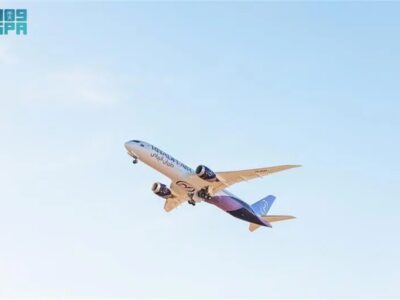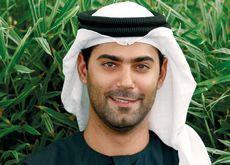Al Barari is fast becoming the region’s most exclusive property developer. Claire Ferris-Lay meets COO Mohammed Zaal to discuss why this project is so different from the rest.
“We saved this olive tree from Palestine; it’s nearly 150 years old,” Mohammed Zaal points out as he begins the tour of his family’s exclusive real estate development, Al Barari.
He steps into the show villa and continues. It is a maze of bedrooms, reception rooms and outside dining areas. With Dubai’s five year real estate boom it would be easy to think you’ve toured similar villas more than a dozen times. You won’t, of course, have seen anything like this before.
Al Barari is the $6.4bn brainchild of Zaal Mohammed Zaal, Mohammed’s father and chairman of the Dubai-based developer of the same name. Set in Dubailand, Al Barari, which translates into “The Wilderness,” is one of the Gulf’s most exclusive and luxurious real estate projects. With over 300 villas set in 14.2 million sq ft of greenery, lakes and trees it is also the lowest density development in the region.
The rooms are light and airy, the parquet flooring is shipped over from Australia and should you wish to venture into one of the communal spaces you’ll be far from disappointed with a range of themed botanical gardens as well as jogging tracks and yoga areas.
Most unusually given the economic climate, work is going full steam ahead. Already 70 percent completed, handover for the first phase will begin in September and villas will continue to be delivered to buyers at an average of five per week until mid next year.
From construction to handover, the Zaal’s have gone to great lengths to ensure that Al Barari is everything that its customers have come to expect, from reducing the number of villas to accommodate larger palace-style homes to ensuring a multitude of options are available for homeowners to make each home individual. This type of luxury doesn’t come cheap with villas starting at $9.5m and apartments, which will be available in the second phase, from $1.4m. The concept for Al Barari was born ten years ago when, after years of living in Europe, the Zaal family relocated to Dubai.
“It actually started because we wanted a home and trying to find a house in Dubai is always difficult. We had lived in Europe and we missed some of the things we had there. Here you have a road in front of you and a road behind you, you don’t know who your neighbours are, and if you want to go for a walk with the dog you have to use the main road,” explains Zaal, the project’s chief operating officer.
“My father and my family love plants. We had a commercial business, which was planting, but it was more of a hobby. This development is really our business and pleasure wrapped into one,” he adds. As such, the whole family is involved. Zaal’s Scottish mother Leslie is in charge of the interior design while sister Kamelia is overseeing the outdoor design. Until last year Zaal’s older sister, Nadia was also involved until she took her current position as CEO of the region’s other exclusive developer, Abu Dhabi-based Zaya.
For a while though it looked like the project, which was financed by Al Barari, might not ever break ground. “When I went to the consultants and bankers five years ago with this idea of gardens and lakes, and quality of life with everything within walking distance, they said to me, ‘Zaal you are putting 300 villas in 10 million sq ft of land, you are out of your mind. We love you but it doesn’t make economic sense,’” chairman Zaal told reporters at its launch.
“We really do believe in the value of these properties. My entire family has sweated blood on this project,” his son adds.
As the Zaals’ anticipated, demand for exclusivity in a region of identikit homes, was high and Al Barari can now boast of more billionaires per square metre than anywhere else in the region. “90 percent of our buyers [are looking to live here],” explains Zaal. “All of our clients are homeowners… We have seven villas in total, which are mortgaged, so they are all cash buyers.”
Appeal to end users
Al Barari’s appeal to end users, rather than the speculative buyers who have plagued Dubai’s real estate market since it first opened up to foreign ownership in 2006, has ensured that the development has only been mildly affected by the financial crisis, which has seen real estate prices plummet.
“We have a product here which is one of a kind… 75 percent has already been sold and once we deliver the first phase I think people will be able to see how things function, so I think [we’ll sell out] before we finish the project.”
Infrastructure and ground work on phase two, which will include a boutique hotel, 32 villas and a spa, is expected to start at the end of the year. While construction hasn’t been delayed, the Zaals’ haven’t yet officially launched the sales phase of the second phase due to the onset of the financial downturn last year. “We are looking to make a decision after the summer,” says Zaal. “We did a soft launch last year for our [existing] clients. The crash… gave us an opportunity as well; it has given us time to concentrate on details such as design.”
Al Barari has so far invested $381.7m in greenery for phase one and has also established its own onsite plant nursery. The 50,000 sq m nursery is expected to produce around 1.6 million trees and shrubs a year, most of which will be used in the grounds. As one of the largest plant nurseries in the region it is already home to over 800 species of plants, 200 of which have never been trialed in the UAE. “People always dismiss landscaping; they plant a few plants, but it creates beautiful areas. Even in this climate we have tonnes of birds which have already migrated here,” says Zaal.
“Originally we intended to have 80 percent green space, but I think it has gone up since we reduced the number of villas. Even the late HH Sheikh Zayed was really passionate about planting and he implemented that the government needs to maintain a certain percentage of landscaping annually. We love it and we genuinely believe it is giving something back,” he continues.
With demand for such an exclusive development evident, Zaal says there are plans to further develop the brand and begin other similar projects across the region in Oman and Abu Dhabi. He is keen to point out that this will not be at the expense of the current Dubailand project. “It has always been the idea to concentrate on this first. That is where others have failed; they were all stretching themselves before they finished the first.
“We have looked into a number of sites over the years in a number of locations. [In] Abu Dhabi we’ve had some offers in a few locations and we are looking at them, and other areas. Abu Dhabi definitely has potential,” he says smiling.Click here to view the complete 30 under 30 list.





